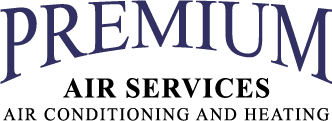
To avoid rising energy costs and work toward a more sustainable life, many homeowners are trying new methods to maintain comfort levels while using less energy. As part of the Inflation Reduction Act, federal tax credits are available for upgrading to more efficient HVAC systems, such as air conditioners. These credits offer big savings, provided that homeowners select eligible equipment and submit the right paperwork.
If you’re worried about a long, complicated process, we can share something that will help! Premium Air Services LLC hopes this guide will give you what you need to secure 2024’s HVAC tax credits. Here’s what you’ll need to do.
Understanding the HVAC Tax Credits
These valuable tax credits for upgrading your home to be more energy-efficient are just one portion of the recent Inflation Reduction Act. Energy costs affect everyone, so helping homeowners upgrade to higher efficiency utilities can benefit everyone. The key provision of these credits is to mitigate costs associated with installation and renovation projects. Two of note are the Energy Efficiency Home Improvement Credit and the Residential Clean Energy Credit.
But remember, to earn any of the credits, you’ll have to complete IRS Form 5695. Additionally, this form needs to be submitted within the same tax year any upgrades were installed, not purchased.
Energy Efficiency Home Improvement Credit
Through 2032, the Energy Efficiency Home Improvement Credit provides up to $3,200 each year for energy-efficient home upgrades. This can be up to 30% of the total project’s cost. Keep in mind that in order to get back the maximum amount, it means making severel investments. For example, you’ll receive up to $2,000 for high efficiency heat pump systems. This can be combined with the remaining $1,200 in credits for other eligible upgrades made within the tax year.
While new heat pump installation projects are a great use of the program, high-efficiency furnaces, air conditioners, boilers, and other HVAC systems are still eligible for this tax credit. You’ll need to confirm the make and model’s energy efficiency rating is high enough for eligibility.
Exploring the Residential Clean Energy Credit
The Residential Clean Energy Credit offers 30% savings on a number of other residential clean energy efficiency projects. Eligibility only applies to homeowners looking for new clean energy solutions for their home. While the Home Improvement Credit works primarily with utilities and HVAC systems, this credit is instead designed around renewable energy sources like solar and wind energy.
Some key details of this tax credit include the requirement that installation must occur between 2022 and 2032. But at the same time, homeowners can use any excess credit to reduce taxes in future years. This is a great way to spread out costs and keep them more manageable.
Additional Qualifications for Energy Tax Credits
Because HVAC systems are one of the major reasons for high energy bills, these tax credits offer more access to the most energy-efficient options. But home energy efficiency can be improved in lots of other ways. Apart from the previously listed HVAC upgrades, {you could also choose|other eligible items include|you also have access to:
- Heat pump water heaters
- Modern electrical panel improvements
- Upgraded electrical wiring
- Enhancements to insulation, air sealing, and ventilation
- Energy-efficient cooking appliances like stoves, cooktops, and ovens
- Efficient heat pump clothes drying solutions
- Water boilers
Like the HVAC systems, you’ll need to verify that your preferred make and model features the eligible energy efficiency ratings.
Maximizing Your 2024 HVAC Tax Credits: Top 3 Tips
While all the listed upgrades can improve your home’s energy efficiency, some planning ahead will ensure more long-term benefits. Maximize your HVAC tax credits with these reminders:
- Conduct a home energy audit to identify impactful upgrades. Trust experienced HVAC companies to pinpoint essential products and services.
- Improve your home's thermal efficiency with better windows and doors.
- Look into rebates for clean energy projects from utilities. Renewable sources like solar, wind, and geothermal contribute to community power grid sustainability.
- Don’t forget financing options from local service companies, which can help reduce costs even more.
Secure Your 2024 HVAC Credits with Help from Premium Air Services LLC
Partner with local HVAC professionals like Premium Air Services LLC for help with home energy audits and new installation projects. Our helpful installers know how to provide all you need for a more energy-efficient home.
